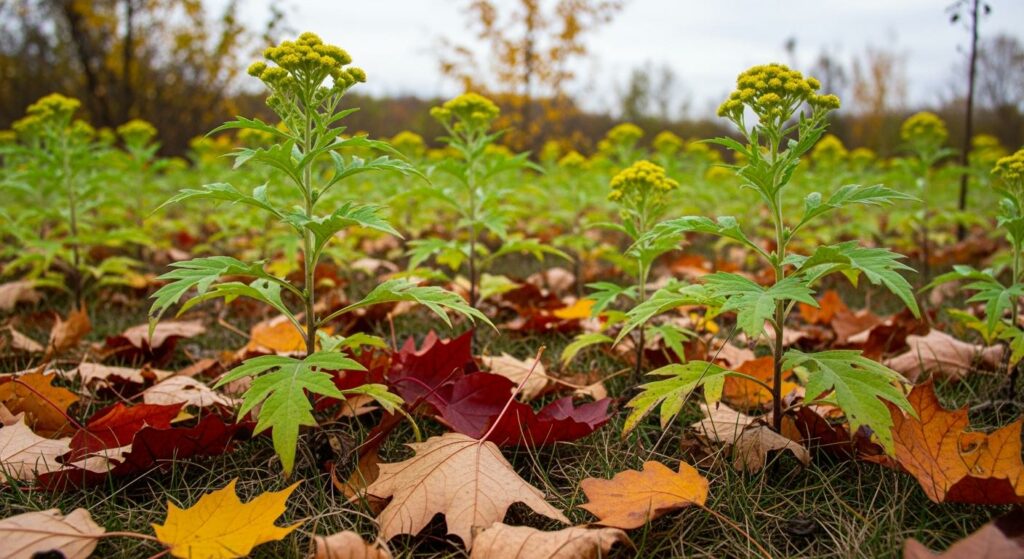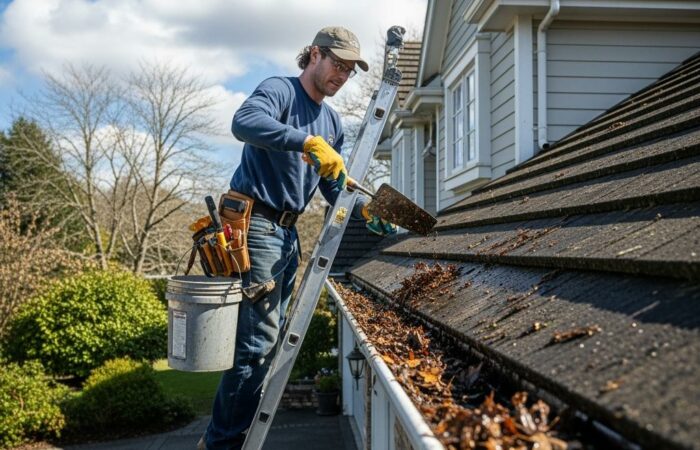
As the vibrant colors of autumn begin to transform our town, many Madison residents experience more than just the beauty of the season. Fall allergies can significantly impact quality of life, causing symptoms ranging from mild discomfort to more serious respiratory issues. Understanding these seasonal triggers can help you better manage symptoms and enjoy all that Madison’s fall season has to offer.
Common Fall Allergens in Connecticut
While Madison doesn’t have unique allergens compared to other Connecticut communities, several common fall triggers affect residents:
Ragweed Pollen
Ragweed is the most notorious fall allergen, typically releasing pollen from August through November. A single ragweed plant can produce up to one billion pollen grains, which can travel hundreds of miles on the wind—even reaching Madison residents who live near the shoreline.
Mold Spores
Fall’s damp conditions and decomposing leaves create the perfect environment for outdoor molds to thrive. Mold allergies often peak during late summer and fall, particularly after rainy periods followed by warm days.
Dust Mites
As residents turn on heating systems for the first time in months, dormant dust and dust mites can be circulated throughout homes, triggering allergic responses.
Other Environmental Factors
- Burning wood in fireplaces can release irritants
- Seasonal yard work stirs up pollen, mold, and other particles
- Pets spending time outdoors bring allergens into the home
Recognizing Fall Allergy Symptoms
Many Madison residents note their allergies “flaring up” during fall. Common symptoms include:
- Nasal: Congestion, runny nose, sneezing, post-nasal drip
- Eye-related: Itchy, watery, or red eyes
- Respiratory: Coughing, wheezing, shortness of breath
- Other: Fatigue, headaches, sore throat
It’s important to note that these symptoms can sometimes be confused with early fall colds or other respiratory infections. If you’re unsure whether you’re experiencing allergies or something else, consult with your healthcare provider.
Managing Fall Allergies in Madison
Monitoring and Avoidance
- Check daily pollen counts through weather apps or websites
- Limit outdoor activities during peak pollen times (typically midday)
- Keep windows closed during high pollen days
- Remove shoes when entering your home to avoid tracking in allergens
- Change clothes after spending time outdoors
Home Management
- Use air purifiers with HEPA filters to reduce indoor allergens
- Clean or replace HVAC filters before turning on heating systems
- Keep indoor humidity between 30-50% to discourage dust mites and mold
- Promptly rake and remove fallen leaves from your yard
- Wash bedding weekly in hot water to reduce dust mites
Medical Management
- Over-the-counter antihistamines can help manage symptoms
- Nasal corticosteroid sprays can reduce inflammation
- Decongestants may provide temporary relief of nasal congestion
- Saline nasal irrigation can help flush allergens from nasal passages
- For persistent or severe symptoms, consult an allergist about prescription options or immunotherapy
When to Seek Medical Attention
While most allergy symptoms can be managed at home, some situations warrant medical attention:
- Difficulty breathing or shortness of breath
- Symptoms that significantly interfere with daily activities
- Symptoms that don’t improve with over-the-counter treatments
- Persistent sinus infections or ear infections
- Asthma symptoms that worsen during allergy season
Special Considerations for Madison Residents
Shoreline Effects
Madison’s location along Long Island Sound can sometimes create unique weather patterns that affect how allergens move and concentrate. On days with onshore breezes, allergen levels may be lower near the coast but higher inland.
Outdoor Activities
As Madison residents enjoy popular fall activities like hiking at Rockland Preserve, visiting Hammonasset State Park, or attending outdoor community events, being prepared for potential allergen exposure becomes important.
Seasonal Weather Patterns
New England’s variable fall weather can influence allergen levels. Dry, windy days typically have higher pollen counts, while rain temporarily clears pollen from the air but can promote mold growth afterward.
Planning Ahead for Allergy Season
- Consult with your doctor before allergy season begins
- Ensure prescriptions are filled and over-the-counter medications are stocked
- Start taking allergy medications before symptoms typically begin
- Schedule outdoor activities during lower pollen count periods when possible
While fall allergies are a common challenge for many Madison residents, understanding triggers and taking proactive steps can help minimize their impact. With proper management, you can fully enjoy Madison’s beautiful autumn season—from the colorful foliage along the Rockland Preserve trails to community events throughout town.
For medical emergencies, always call 911. For non-emergency medical questions, consult your healthcare provider.



